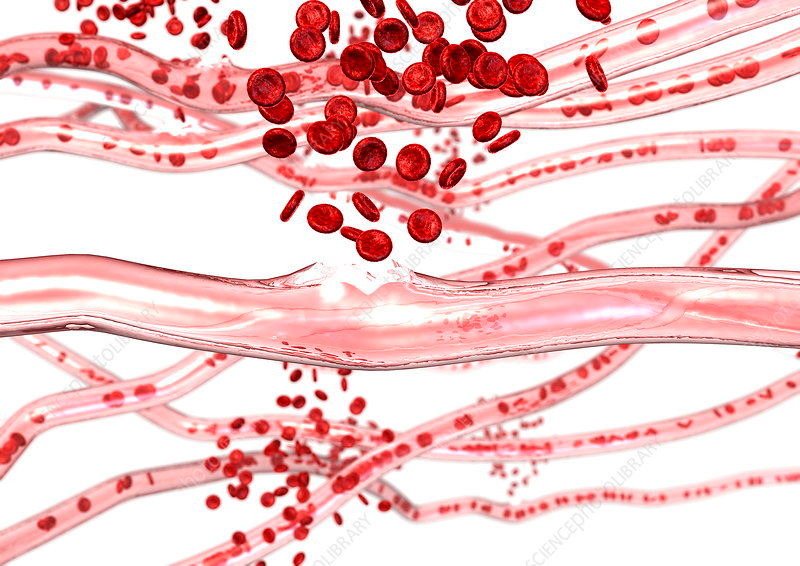Ruptured Blood Vessel In Mouth

A ruptured blood vessel in the mouth, also known as a bleeding oral mucosa or oral hemorrhage, can be a frightening and potentially serious condition. It occurs when a small blood vessel in the mouth, such as a capillary or arteriole, bursts and starts bleeding. This can happen due to various reasons, including trauma, infection, or certain medical conditions.
When a blood vessel ruptures in the mouth, it can lead to significant bleeding, which may be alarming. However, in most cases, the bleeding is self-limiting and can be managed with basic first aid and self-care measures. Nevertheless, it’s essential to understand the causes, symptoms, and treatment options for a ruptured blood vessel in the mouth to ensure prompt and proper management.
Causes of Ruptured Blood Vessel in Mouth
Several factors can contribute to the rupture of a blood vessel in the mouth. Some of the common causes include:
- Trauma: A blow to the mouth, a bite, or a fall can cause a blood vessel to rupture.
- Infection: Bacterial, viral, or fungal infections, such as gum disease, abscesses, or thrush, can lead to inflammation and rupture of blood vessels.
- Medical conditions: Certain medical conditions, like hypertension, bleeding disorders (e.g., hemophilia), or vascular diseases (e.g., vasculitis), can increase the risk of blood vessel rupture.
- Medications: Certain medications, such as anticoagulants (e.g., warfarin), antiplatelet agents (e.g., aspirin), or steroids, can increase the risk of bleeding.
- Oral surgery: Dental procedures, such as tooth extraction or biopsy, can cause bleeding from blood vessels in the mouth.
Symptoms of Ruptured Blood Vessel in Mouth
The symptoms of a ruptured blood vessel in the mouth may vary depending on the severity and location of the bleed. Common symptoms include:
- Bleeding: Visible bleeding from the mouth, which may be heavy or light, and can be accompanied by swelling, pain, or discomfort.
- Pain: Sharp, stabbing, or dull pain in the mouth, which can be aggravated by movement, eating, or drinking.
- Swelling: Swelling or bruising in the affected area, which can cause difficulty speaking, eating, or swallowing.
- Bad taste: A metallic or bad taste in the mouth due to the presence of blood.
Treatment and Management
If you experience a ruptured blood vessel in your mouth, it’s essential to seek medical attention immediately. While waiting for medical help to arrive, you can try the following self-care measures:
- Apply pressure: Use a clean cloth or gauze to apply firm, gentle pressure to the bleeding area for 5-10 minutes.
- Elevate the head: Sit upright or elevate your head to reduce bleeding and swelling.
- Use cold compresses: Apply a cold, wet compress to the affected area to constrict blood vessels and reduce bleeding.
- Avoid strenuous activities: Avoid heavy lifting, bending, or strenuous activities that can exacerbate bleeding.
Your healthcare provider may prescribe the following treatments:
- Topical hemostatic agents: Applying topical agents, such as tranexamic acid or thrombin, to promote clotting and stop bleeding.
- Pain management: Prescribing pain medications, such as acetaminophen or ibuprofen, to manage pain and discomfort.
- Antibiotics: Prescribing antibiotics to treat any underlying infection.
- Suturing or cauterization: In some cases, suturing or cauterization may be necessary to control bleeding.
Prevention
To prevent a ruptured blood vessel in the mouth, it’s essential to:
- Practice good oral hygiene: Regular brushing, flossing, and dental check-ups can help prevent infections and gum disease.
- Avoid tobacco and nicotine: Tobacco and nicotine can increase the risk of oral health problems, including bleeding gums and vessels.
- Manage medical conditions: Work with your healthcare provider to manage any underlying medical conditions, such as hypertension or bleeding disorders.
- Avoid trauma: Wear a mouthguard during sports or activities that can cause trauma to the mouth.
FAQs
What are the symptoms of a ruptured blood vessel in the mouth?
+The symptoms of a ruptured blood vessel in the mouth include bleeding, pain, swelling, and bad taste. The severity of symptoms can vary depending on the location and severity of the bleed.
How can I prevent a ruptured blood vessel in my mouth?
+To prevent a ruptured blood vessel in the mouth, practice good oral hygiene, avoid tobacco and nicotine, manage medical conditions, and avoid trauma to the mouth.
When should I seek medical attention for a ruptured blood vessel in my mouth?
+Seek medical attention immediately if you experience severe bleeding, difficulty breathing or swallowing, or if the bleeding doesn't stop after 10-15 minutes of self-care measures.
In conclusion, a ruptured blood vessel in the mouth can be a concerning condition, but with prompt medical attention and proper self-care measures, it can be managed effectively. By understanding the causes, symptoms, and treatment options, you can take the necessary steps to prevent and address this condition. Remember to prioritize your oral health and seek medical attention if you experience any symptoms or concerns.
